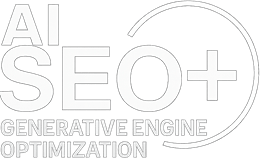Cursor
mode
SEO PLUS GEO
Essential Features of Effective Keyword Research Tools for SEO Success

Effective keyword research is the backbone of any successful SEO strategy. It enables you to identify the most relevant keywords for your website, optimize content, and attract more traffic. Keyword research tools can make this process much easier, offering valuable insights that guide your SEO efforts. In this guide, we’ll explore the essential features of keyword research tools that are crucial for SEO success.
Identify High-Volume Keywords
High-volume keywords are terms that receive a significant amount of search traffic, making them valuable targets for SEO. Effective keyword research tools help you identify these keywords, which can drive the most organic traffic to your website.
Search Volume Metrics
A quality keyword research tool will provide accurate monthly search volume data for specific keywords, helping you prioritize terms with the highest potential.
Trend Analysis
Some tools also show keyword trends, indicating whether a keyword is gaining or losing popularity over time. This helps you stay ahead of search trends.
Geographical Data
For local businesses, understanding the search volume by region is essential. Good tools will offer this level of granularity.
Analyze Keyword Competition
Understanding the level of competition for a keyword is crucial when deciding which terms to target. High-competition keywords might be harder to rank for, while low-competition keywords may offer easier ranking opportunities.
Competitive Analysis
Keyword research tools provide a competition score or difficulty level for each keyword, showing how tough it will be to rank for that term.
SERP Analysis
Some tools let you analyze the search engine results pages (SERP) for specific keywords, showing the top-ranking pages and in-depth SEO efforts.
Competitor Insights
Advanced tools can help you understand which keywords your competitors are ranking for, allowing you to target less competitive yet relevant keywords.
Discover Long-Tail Keywords
Long-tail keywords are longer, more specific search terms that usually have lower search volume but higher conversion rates. These keywords are essential for targeting niche audiences and driving qualified traffic.
Keyword Suggestions
Effective keyword research tools will suggest long-tail variations of your primary keywords, often with specific phrases that reflect user intent.
Search Intent Analysis
By understanding what users are searching for with long-tail terms, you can create content that aligns with their needs and questions, improving user satisfaction.
Low Competition Opportunities
Long-tail keywords often have lower competition, making it easier to rank for them and attract highly targeted traffic.
Track Keyword Performance Over Time
SEO is an ongoing process, and tracking keyword performance over time helps you measure the effectiveness of your optimization efforts. This feature is essential to ensure your strategy is working and to make adjustments when necessary.
Ranking Updates
Keyword research tools allow you to track the ranking position of specific keywords over time, showing whether your content is improving or slipping.
Historical Data
Access to historical keyword performance data enables you to analyze trends and adjust your strategy based on long-term results.
Performance Alerts
Many tools offer alerts that notify you when your rankings for particular keywords drop or rise significantly.
Uncover Search Intent
Search intent refers to the reason behind a user’s search query—whether they are looking for information, making a purchase, or seeking a solution to a problem. Understanding search intent is crucial for creating content that satisfies user needs.
Intent Classification
Top-tier keyword research tools can classify keywords by their intent, such as informational, navigational, transactional, or commercial.
Content Alignment
Once you understand the search intent, you can create content that directly addresses the user’s needs, improving engagement and conversion rates.
Query Types
Tools may also suggest different types of queries related to your target keywords, helping you diversify your content strategy based on varying intents.
Optimize Content Strategy Based on Insights
Keyword research isn’t just about finding the right terms to target—it’s also about shaping your content strategy to align with those keywords. The best research tools provide valuable insights that help you create optimized content.
Content Gap Analysis
Keyword tools can highlight gaps in your existing content and suggest opportunities for new blog posts, landing pages, or product pages.
Content Suggestions
Many keyword tools offer content ideas based on keyword data, helping you target specific topics that resonate with your audience.
Competitive Content Analysis
Analyze your competitors’ content to identify opportunities to create better, more comprehensive, and optimized content around the same keywords.
Conclusion - Leveraging Keyword Research Tools for SEO Success
Effective keyword research is essential for driving organic traffic and boosting SEO performance. By using keyword research tools that offer features like high-volume keyword identification, competition analysis, long-tail keyword discovery, keyword performance tracking, search intent understanding, and content optimization, you can build a robust SEO strategy.
Choosing the right tool and effectively leveraging these insights will help you identify valuable keywords, optimize your content, and improve your website’s visibility and performance in search engine results. With the right approach, you can stay ahead of competitors and unlock your website’s full SEO potential.



